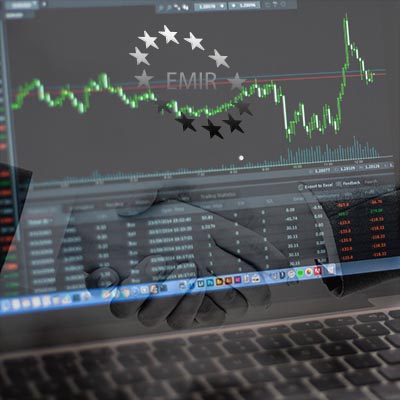EMIR Framework
CategoryFinancial Market Regulation
European Market Infrastructure Regulation (EMIR) is a EU legislation that came into force in 2012, aimed at improving the transparency of Over-the-Counter (OTC) derivatives markets via clearing and reporting obligations, and reducing the risks associated with those markets.
Derivatives Market Supervision
Increased Transparency of Clearing and Reporting
EMIR mandates that Over-the-Counter (OTC) derivatives meeting certain requirements are subject to the clearing obligation, and for all OTC derivatives that are not centrally cleared, risk mitigation techniques apply. The objective of the legislation is to reduce systemic counterparty and operational risk, and help prevent financial system collapse.
As part of EMIR legislation, all OTC derivative transactions need to be reported to a Trade Repository (TR) — a business entity that centrally collects and maintains the records of derivatives. In addition, all standardized OTC derivative contracts are now required to be cleared through a Central Counterparty (CCP) — a corporate entity (typically operated by a major commercial bank) that reduces counterparty, operational, settlement, market, legal and default risk for traders, and guarantees the terms of a trade.
EMIR establishes organizational conduct of business and prudential standards for both TR and CCP entities. All G20 countries have committed to accelerate the implementation of strong measures to improve transparency and regulatory oversight of OTC derivative contracts in an internationally consistent and non-discriminatory way.
